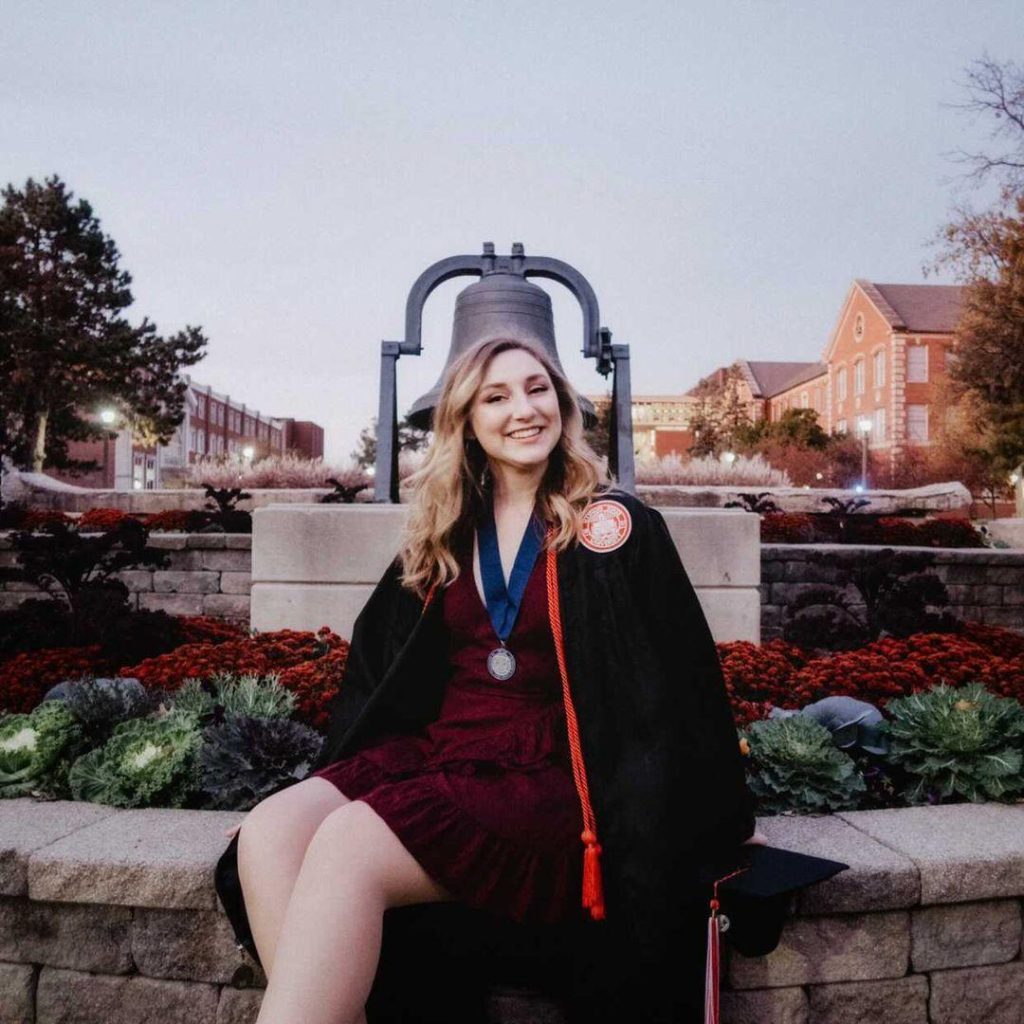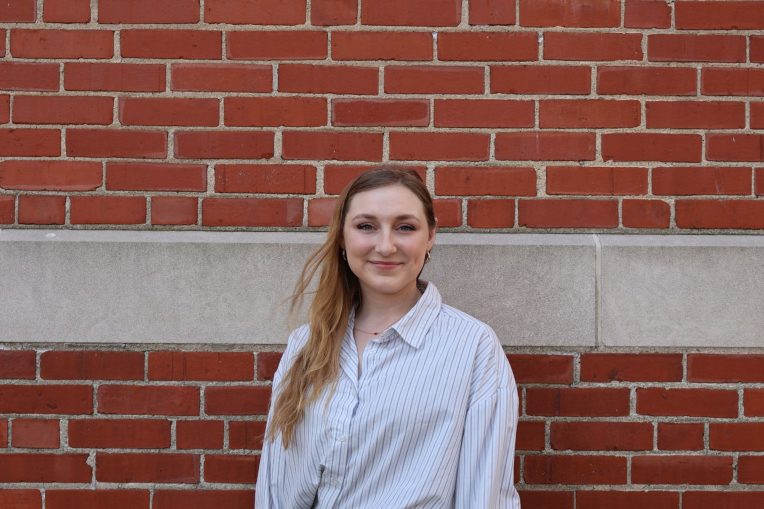The Graduate School has selected Aleena Mangold ’21 as the March 2024 GradBird Scholar recipient. GradBird Scholar is an initiative to recognize graduate students for their scholarly endeavors at Illinois State University.
Mangold is about to graduate with her master’s degree in clinical-counseling psychology from the Department of Psychology, where she also earned her bachelor’s degree. Her research and clinical interests include disordered eating and therapies for trauma. Outside of school, she loves to draw, be outside, and spend time with her partner, friends, and dog. She is very passionate about many social issues, such as access to health care and how we can promote better quality of life for people in our communities by increasing access to resources.
What is your favorite part of your program?
My favorite part of the clinical-counseling psychology program is the dual focus on research and practice. We are encouraged to participate in research and to use research to inform our counseling practice, and vice versa. Most similar programs focus on preparing you either to practice or to go into academia. While it does get busy at times, it has been really beneficial to learn skills in both of those areas. Additionally, I feel that our professors are open and accessible if we ever have questions about the profession, our classes, or anything else.
Do you work with a specific faculty/staff member to help with your research? What has your experience been like working with them?
Dr. Suejung Han, whose research focuses on disordered eating as well as diversity issues, has been my research mentor. She is so incredibly knowledgeable about this area of research and has the wonderful ability to teach concepts in a way that makes sense. Dr. Han has really guided me and pushed me to make my thesis the best it can be, and I am so thankful for her mentorship.
Can you explain your research and the importance of it within your field?
Eating disorders are known to be the deadliest mental health conditions, and the development and maintenance of eating disorders is incredibly complex as there are many social factors that increase the risk of developing an eating disorder. My research looks at how messages from fathers about young women’s appearance and eating behaviors can increase disordered eating via self-objectification (the internalization of societal expectations about women’s appearances and viewing women’s bodies as objects). What we have found is that when young women receive messaging from their fathers to eat a certain way or look a certain way, they tend to exhibit higher levels of self-objectification and an increase in unhealthy eating disorders. This is an important finding because most eating disorder research has looked at the impact mothers have on the development of eating pathology and these findings suggest that both mothers and fathers can have an important impact, just through different mechanisms.
Why do you enjoy researching this topic and what more do you hope to learn about it?
I really value the idea of looking at a client’s experiences and difficulties holistically. By understanding the complex ways that family can either contribute to or protect young women from disordered eating, we can better address their concerns and promote healthy family communication about nutrition and appearance. I hope to continue learning more about societal influences on disordered eating and to learn ways of incorporating this knowledge into my treatment of clients with eating concerns.




What do you hope further research about this topic will do to benefit the greater of society?
An estimated 65% of women engage in unhealthy dieting behaviors. Industries like the cosmetics and wellness industries profit greatly off women feeling poorly about their appearance. My hope is that continued research in this area will inform interventions that reduce disordered eating behaviors in the general population and help women build more positive self-images that are based on more than their appearance. Additionally, I hope we can increase awareness of the impact that societal messages about appearance have and empower parents to communicate healthy beliefs and behaviors around diet and appearance.
Would you like to highlight anything else about your research or promote anything specific you are involved in?
I also have had the chance to work with Dr. Caitlin Mercier in the STIGMA Lab on campus researching the impacts of colorism and gendered racism on Women of Color. Dr. Mercier is doing some wonderful work looking at understudied stigmas that influence the lived experiences and well-being of marginalized communities. This opportunity has taught me so much about doing qualitative research. I have also learned a lot about how the field of psychology has historically contributed to the mistreatment of Women of Color, and how hopefully our field can work to repair some of this damage while also promoting their well-being.

